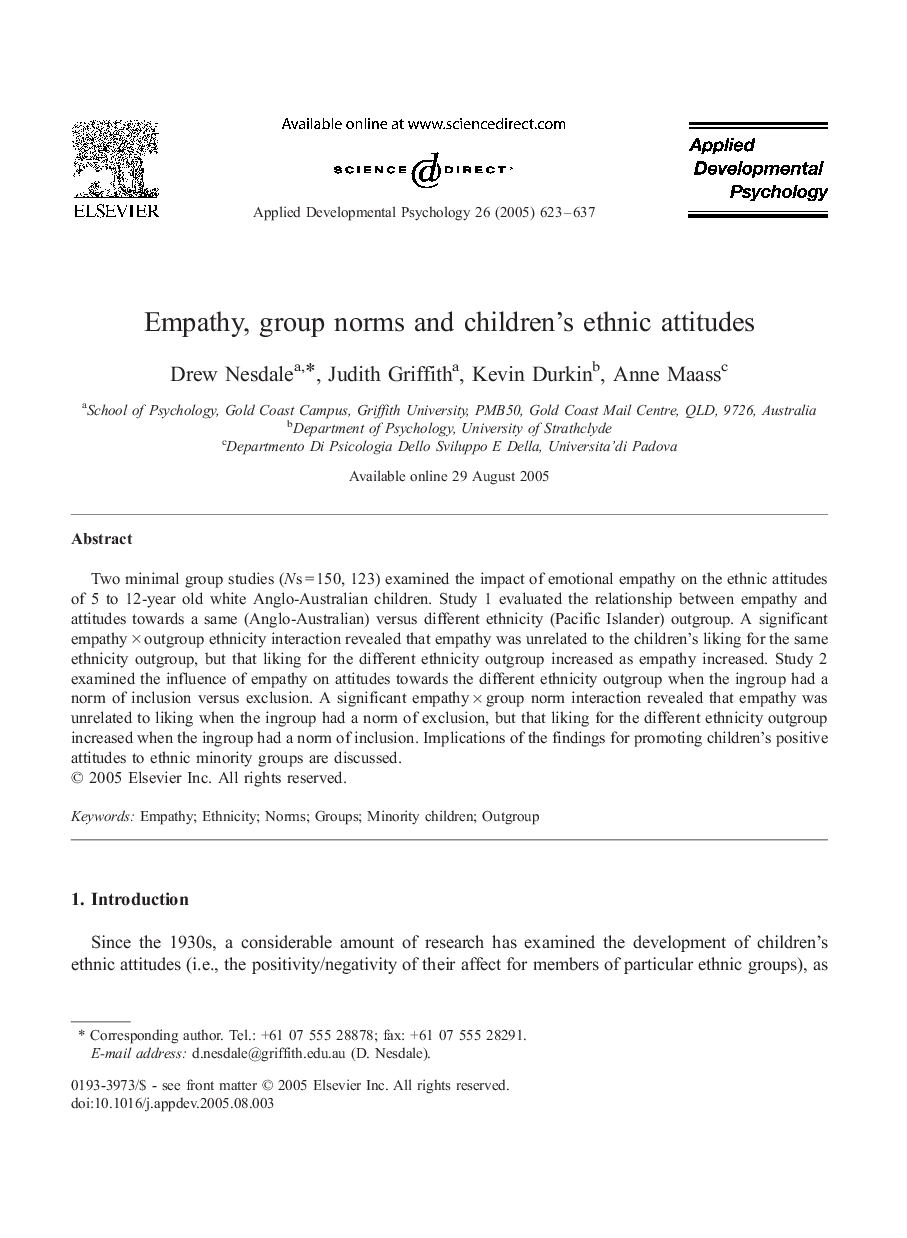| Article ID | Journal | Published Year | Pages | File Type |
|---|---|---|---|---|
| 10314325 | Journal of Applied Developmental Psychology | 2005 | 15 Pages |
Abstract
Two minimal group studies (Ns = 150, 123) examined the impact of emotional empathy on the ethnic attitudes of 5 to 12-year old white Anglo-Australian children. Study 1 evaluated the relationship between empathy and attitudes towards a same (Anglo-Australian) versus different ethnicity (Pacific Islander) outgroup. A significant empathy Ã outgroup ethnicity interaction revealed that empathy was unrelated to the children's liking for the same ethnicity outgroup, but that liking for the different ethnicity outgroup increased as empathy increased. Study 2 examined the influence of empathy on attitudes towards the different ethnicity outgroup when the ingroup had a norm of inclusion versus exclusion. A significant empathy Ã group norm interaction revealed that empathy was unrelated to liking when the ingroup had a norm of exclusion, but that liking for the different ethnicity outgroup increased when the ingroup had a norm of inclusion. Implications of the findings for promoting children's positive attitudes to ethnic minority groups are discussed.
Related Topics
Social Sciences and Humanities
Psychology
Applied Psychology
Authors
Drew Nesdale, Judith Griffith, Kevin Durkin, Anne Maass,
